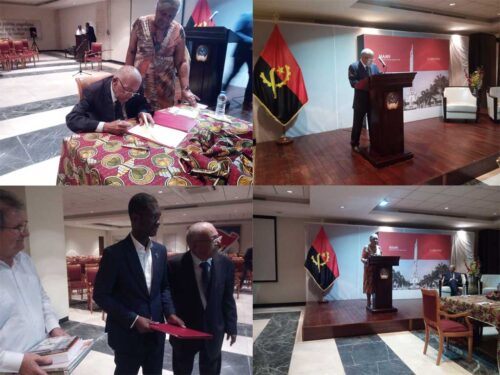According to MAAN Director General Antonio Fonseca, the signing of the document in Luanda was “a great joy,” which will come to fruition in the coming days, when the document will be penned in Havana by the Cuban counterpart.
“Our joy is justified because the signing of this agreement can enhance research and the dissemination of the life and work of the leaders of the Angolan Revolution and the Cuban Revolution, Antonio Agostinho Neto and Fidel Castro Ruz, respectively,” he stated.
It means another open door to transmit to the new generations the values cultivated by both patriots, as well as a way to promote the study, rescue and dissemination of the historical memory and the socialization of national culture, “which does justice to historic ties”, he added.
Under the leadership of Fidel Castro, Cuba was always on Angola’s side, from the liberation struggle, the fight against foreign invaders and the maintenance of territorial integrity, to the beginning of the construction of the independent State and the subsequent tasks in favor of education and culture, Fonseca explained.
Such relationships of brotherhood, he noted, should be known to the present and future generations because “memory is a social and cultural right, a source of training that places man in the best conditions to project the future.”
The trajectory of bilateral ties generated information that is still scattered and deserves the attention of both parties for its compilation and analysis, which can contribute to the historiography of the national liberation struggle in Angola, the intellectual pointed out.
In Fonseca’s opinion, the institutionalization of relations between the MAAN and the Fidel Castro Ruz Center means establishing ties between two institutions with programs aimed at recovering and preserving the memory of the struggles carried out for the good of their respective peoples and humanity.
jg/ro/mjm









